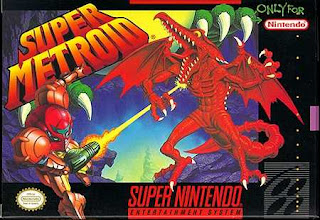
 First, I would like to discuss the current state of First-Person Shooters (FPS). Once a genre fit only for those who enjoyed tension, gore, and fast-paced combat, FPS games have drastically changed over the years. Today, FPSs have partially detached from their blood-crazed ancestors and have adopted elements that are present in other genres of games.
First, I would like to discuss the current state of First-Person Shooters (FPS). Once a genre fit only for those who enjoyed tension, gore, and fast-paced combat, FPS games have drastically changed over the years. Today, FPSs have partially detached from their blood-crazed ancestors and have adopted elements that are present in other genres of games. Storytelling (both fictional and historic) and character development are just a few properties that are being successfully implemented in today's FPS games. Of course, there are still traits in present-day FPSs that mimic, or even surpass, their predecessors: there's still a highly competitive atmosphere; quick and exciting combat; and more gore than you can shake a stick at. Those traits aren't particularly impressive to me (but I'll admit that I enjoy playing a FPS now and then just for the adrenaline pump), but games like Halo and Call of Duty: Modern Warfare are taking FPSs in the right direction in regards to creating interesting narratives. I look forward to what innovations lie in wait for the FPS genre.
Adventure (or platforming) games have been the bread and butter of video games since its inception. From Mario to Kirby to Sonic the Hedgehog (although Sonic has somewhat fallen from grace in recent years), adventure games are wildly popular, and for good reason. They incorporate many of the elements inherent in RPGs; just not as much as their story-oriented cousins. One aspect they share in almost equal presence is their art. Adventure games today sport impressive backdrops, detailed character models, and fluid/beautiful movement. Many adventure games even trump the average RPG in terms of art quality. They also possess the ability to tell stories in a completely different fashion. Some don't even require much back-story or narrative; the game’s atmosphere and game-play, by themselves, can create an intriguing tale.
 In that vein, I would like to point out the game, Super Metroid. It is one of my favorite adventure games. The player is given very little story at the beginning of the game, but from the moment Samus (the protagonist of Super Metroid) sets foot on the foreign planet, Zebes, the tone is set. Through use of excellent music selection and superb stage design, the player is given a sense of total isolation as Samus explores deeper into the depths of the planet. The only other life forms that exist on the planet are monsters. As expected, they will try at every turn to dismember Samus. It is a tale told almost entirely through its setting as there is no dialog throughout the entire game except at the beginning and the end. It also sports solid game-play mechanics and scripting which assist greatly in maintaining the game's creepy atmosphere. It's an enjoyable narrative with a theme uniquely its own, and I recommend it to any avid gamer.
In that vein, I would like to point out the game, Super Metroid. It is one of my favorite adventure games. The player is given very little story at the beginning of the game, but from the moment Samus (the protagonist of Super Metroid) sets foot on the foreign planet, Zebes, the tone is set. Through use of excellent music selection and superb stage design, the player is given a sense of total isolation as Samus explores deeper into the depths of the planet. The only other life forms that exist on the planet are monsters. As expected, they will try at every turn to dismember Samus. It is a tale told almost entirely through its setting as there is no dialog throughout the entire game except at the beginning and the end. It also sports solid game-play mechanics and scripting which assist greatly in maintaining the game's creepy atmosphere. It's an enjoyable narrative with a theme uniquely its own, and I recommend it to any avid gamer.For those who like to challenge themselves mentally, there exists a genre of video games titled strategy games. It is the genre for the intellectual. However, that definition might be a bit of misnomer. In truth, most strategy games revolve around micro-managing an army of sorts and eliminating your foes. There is still a lot of thought that is required to maintain an efficient army, and it has the potential to stimulate the gamer's mind. Each strategy game usually comes with a fairly interesting narrative (whether it be complete fantasy or based on history). While being less involved on a character-to-character basis, it still provides a unique perspective missing from the other genres. I haven't played many strategy games; yet I would like to highlight one of the few that I enjoyed. I speak of the thrilling series, Warcraft. This strategy game, developed by Blizzard, combines to great effect the intricacies of micro-management, inherent to the strategy genre, and a gripping narrative that was carefully crafted and maintained through the series. It’s truly a masterpiece (plus it has exploding sheep).
Unfortunately, I haven't the time to detail the many genres that exist today, but I think I've made my point. Video games have grown tremendously over the previous decades. As with books, there are many different flavors for all types of people, and each genre carries its own charm. Life would be boring if everyone was only allowed to read text-books, and the same can be said for video games. Variety is the spice of life, and there exists many worthy games in each and every genre. I recommend that every gamer take a chance, and expand his/her breadth by experimenting with all the different genres available to gamers today.






